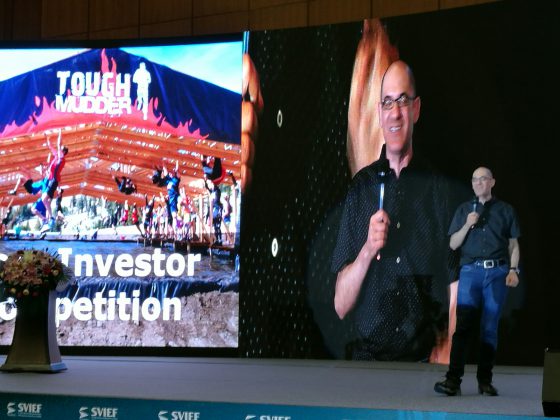Mistakes tend to happen for even the most seasoned startup veterans. Maybe you scaled too quickly, mistimed your product launch, or perhaps you just hired the wrong person. Whatever the reason, mistakes often provide a humbling opportunity for reflection and personal growth, and most importantly, give you an idea of what not to do going forward. At the end of the day however, there are some mistakes that can easily be avoided by listening to the advice of others.
We spoke to nine startup founders and asked them what their best advice was for avoiding the most common startup mistakes. Here’s what they said.
1. Focus
Don’t get stretched out. Tackle a single problem and be the best at doing that one thing. Once you’ve conquered the market, see if you can make it even better before jumping into a new vertical.
Peter Ostroske, OFI
2. Be Realistic
Don’t bite off more than you can chew. Create very specific milestones that will lead to tangible growth and focus on those.
Tessa Court, Intelligence Bank
3. Stay Humble
One of the key mistakes particularly smart entrepreneurs make is thinking they know everything and not leaving their previous experience and egos at the door. Listen to advice from people who have been there before you and made the mistake themselves, be open to opinions and accept them for the constructive or nonconstructive manner in which they are offered. Sometimes taking a step back before making key decisions and asking advice when your not 100% will say you a lot of frustration and money too!
Paul Trayman, LivePhuket
4. Accept Change
A common mistake is not being comfortable with changing trends. This year is set to be a very fast paced year with many more advancements in different sectors.
Kenneth Lou, Novelsys
5. Have a Backup Plan
Always have a Plan B, and C, in case Plan A fails.
Amos Ahola, Collaboration Objects
6. Never Stop Improving
The biggest trap a tech entrepreneur can get into is thinking that the product is finished/done, and they just need to sell it. It is very important to realize that the processes of building/improving a product and selling it are inextricably linked, and there’s huge value in using the experience from selling a product to building it further.
Niraj Rout, Mailflo
7. Prioritize
As the market continues to go faster and faster, I think one of the most important entrepreneurial skills that is needed nowadays is the ability to focus on the top priorities. So, lack of prioritization is the one we should avoid doing – it’s a triangle: what, when and how you do things.
Radu Vrabie, Marketizator
8. Follow Through
Stay focused and keep your eye on the ball. A common trait among entrepreneurs is that we have a lot more ideas than time and resources to implement and execute. Avoid the mistake of getting into the cycle of believing you have another great idea, starting to follow through and take action only to discover that you have been neglecting your core business and revenue model(s). That said, brainstorming can be very positive. Keep an entrepreneurial diary that you look at from time-to-time, but ultimately stay focused on your core business.
Tim Nichols, ExactDrive
9. Track Your Goals
One of the biggest mistakes for us in the past has been to set too many goals. The result is we end up spinning plates with some goals getting completed whilst others end up delayed. This year, we are creating a goal diary where milestones are checked and dates are provided for completion. No other projects are started until completion of existing tasks is finished.
Robert Sturt, TNU, BT Global MPLS Experts









